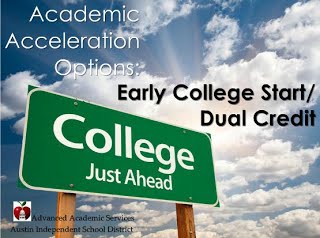Academic Acceleration pertains to the various educational and instructional strategies that educators use to advance the learning progress of students who are struggling academically or who have fallen behind—i.e., strategies that help these students catch up to their peers, perform at an expected level for their age and grade, or meet required learning standards. Academic acceleration is often considered to be an alternative to some forms of remediation that may be designed to deliver less academic content to students at a slower pace. Critics of the “less and slower” forms of remediation tend to argue that the practice is insufficient and ineffective, since students will not only keep falling further behind their peers with each passing year, but they may never catch up or meet expected learning standards before completing their education, which may also place them at a greater risk of dropping out.
To accelerate learning acquisition and progress, schools and educators may employ a wide variety educational techniques, supplemental programs, and academic support, which may be provided during the school day and during regular class periods, or outside of the regular school day and school year.
As a general instructional approach or philosophy, academic acceleration tends to share a few common attributes:
- increasing the amount of instruction provided to struggling students in a given course or subject area by providing supplemental learning time with a teacher, tutor, or other specialist;
- teaching the same amount of content as regular courses, as opposed to less;
- maintaining the same high expectationsfor learning, rather than lowering them;
- deploying different instructional and support strategies—i.e., not repeating the same teaching techniques that are not working for students in their regular courses.
Academic acceleration may also entail instruction in practical academic skills—such as planning, organization, self-control, and study techniques—as well as other forms of support that students may need to succeed academically.
The term acceleration may also pertain to the strategy of exposing groups or populations of students to higher-level content and more challenging assignments earlier in their education. The aim of this approach is to move all students in a class, school, district, or education system further ahead—i.e., past the common or former educational expectations for their age or grade level. For example, a school or district may accelerate the study of mathematics content in the elementary grades so that students are prepared to take algebra by the time they enter eighth grade (in the United States, students typically begin taking algebra in high school).
Additionally, the term can refer to the early promotion of individual students to the next grade or higher (based on their academic achievements or readiness for higher-level work); advancing them in one or more content areas; or allowing them to work independently on more advanced work. The term may also be used in reference to programs or approaches aimed at students in “gifted and talented” programs.
